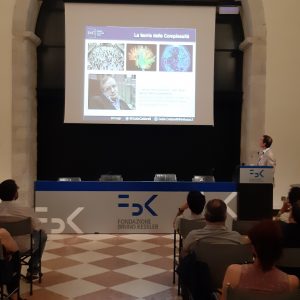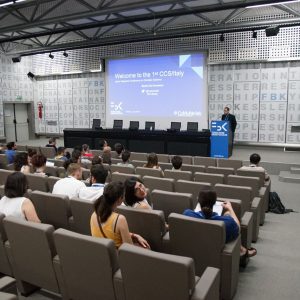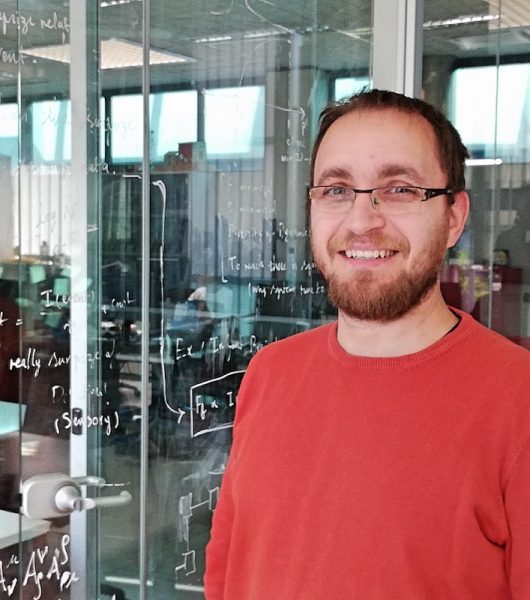A leap into complexity
Human brain, highway systems, social networks designed as systems to understand their dynamics and evolutions. CCS/Italy 2019, the first Italian conference in the industry, was held at FBK in Trento
What do human brains, highways and social networks have in common? They are all examples of complex systems, made up of multiple units that combine to create a network capable of adapting to the context and influencing it at the same time.
CCS/Italy 2019, the first Italian conference in the industry, chaired by FBK researcher Manlio De Domenico, head of the Complex Multilayer Networks Research Unit, wraps up today at Trento-based Fondazione Bruno Kessler. We asked him for an overview on complex systems and on the applications of these innovative studies.
What was the CCS/Italy 2019 conference dedicated to and what were its goals?
CCS/Italy is the first Italian conference on complex systems, sponsored by the Complex Systems Society. The aim was to facilitate the dissemination of research on complex systems, in particular among young researchers. Almost all the invited speakers were young professors, and there were also talks by doctoral students and post-docs and scientific posters presented by very young researchers. The event included a public conference on Monday, July 1, the event opening day, to talk about the science of complexity and how it can help meet the challenges of the future on issues such as society and health.
What are complex systems? Can you give us some examples?
They are systems characterized by a high number of units that interact, forming a complex network, and that adapt to the surrounding environment and, influence it in turn. Key examples are the human brain, cellular functions, society. Interactions mean that many of the properties of complex systems are “emerging”, i.e., they cannot be deduced from the study of units in isolation. For example, it is impossible to understand consciousness by studying only one neuron; it is not possible to understand social dynamics, such as cooperation, if we study an individual outside of society.
Why is it important to study them? Can you give us examples of applications?
The world is rich in complex natural systems (cell, brain, human body, ecosystems), artificial systems (highways, public and private transportation, the Internet) and social systems (in the real world but also in the digital one, like social networks such as Facebook or Instagram). The study of complex systems is necessary to understand the fundamental mechanisms underlying them. When this understanding is achieved, it is usually used for different applications. In marketing, for example, to identify the lowest number of people or entities essential to maximize the dissemination of information or a product. Or to identify signs that a sudden change – a shock – is about to take place. For example, the goal is to stem the onset of financial crises or a blackout on a national scale. We can also determine under what conditions it is possible to act on the human body (for example with medicines) for a specific purpose (for example to treat a symptom) minimizing the side effects due to the network of molecular interactions. This aspect is one of the fundamental principles of personalized medicine. One of the objectives could also be to dismantle a terrorist network by hitting key individuals for information exchange. There are many examples and they cover roughly all areas of knowledge.
What disciplines are involved in the study these systems?
Their study is based on a mathematical formalism, inspired by statistical physics but extremely interdisciplinary, with computer science techniques, applied mathematics, game theory.
Why did the conference take place at FBK?
FBK has recently established the Complex Multilayer Networks research unit that coordinates and started the “Computational Human Behavior” project whose goal is to use the mathematical techniques of complex systems to better understand online and offline collective human behavior.
What bases has CCS/Italy 2019 laid for the future?
It was a unique opportunity to discuss the science of complexity with physicists, mathematicians, computer scientists, biologists, economists, engineers. To talk about progress in this field of research, identify future challenges, plan key collaborations and define Italy’s role in the international scientific community.





